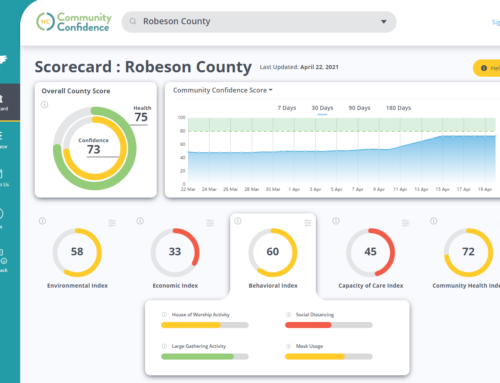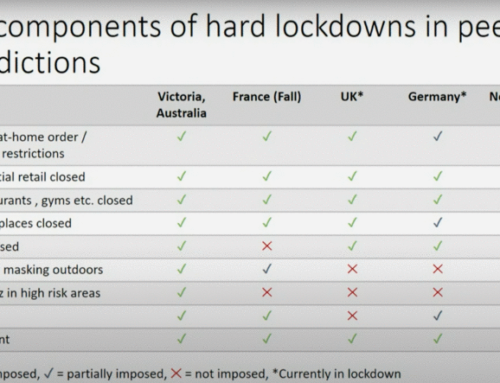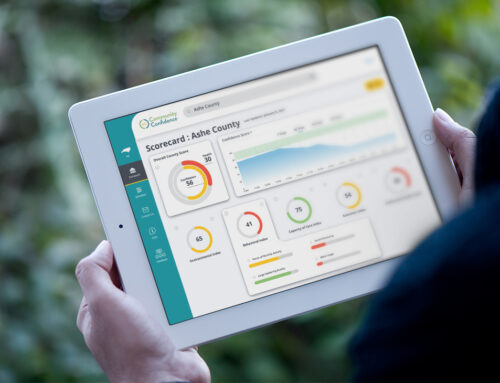“It really bothers me that some of the venues that are allowed to be open, some of these breweries are slammed packed with 200 or 300 people,” Presley said. “And of all the venues in town, we can certainly social distance.”1
A recent article in the Charlotte Observer discussed the frustration felt by Alan Presley, owner of Coyote Joe’s, a popular west Charlotte country music-themed nightclub.
According to the article:
“Presley, his brother Larry and the family of a former partner, the late Kent Robinson, own the club on Wilkinson Boulevard. It’s known for bringing headline country music artists like Luke Bryan and Tim McGraw to Charlotte.
This month, Coyote Joe’s marked its 30th anniversary — but without any celebrating. As the pandemic wears on, and indoor music venues like Coyote Joe’s must remain shuttered, Presley’s frustration has grown.”1
As Presley lamented:
“It really bothers me that some of the venues that are allowed to be open, some of these breweries are slammed packed with 200 or 300 people,” Presley said. “And of all the venues in town, we can certainly social distance.”1
Yet despite installing safety steps like markers and shields, the venue which has capacity for over 3,200 has remained closed since mid-March. Despite North Carolina businesses reopening in phases, indoor music venues like Coyote Joe’s have yet to be allowed to open.
The article goes on to say that:
“The expectation last March, Presley said, was the business would close for a few weeks, maybe a couple of months, to help flatten the curve of rising COVID-19 cases. He didn’t apply for the first round of Paycheck Protection Program loans.
“We were in good financial shape then,” he said. The business applied for the second round but hasn’t yet heard back.
…“Our expenses have kept on keeping on but there’s no clear path to open, that’s the problem,” Presley said.1
Presley’s frustration is compounded by the fact that he and his partners:
“…also own The Blind Horse Saloon, in Greenville, SC, which is open. The capacity for the venue is 2,000 people, and it has hosted up to 600 guests under that state’s restrictions. Presley said there have been no COVID-19-related problems, further proof Coyote Joe’s can open safely.
Presley said last spring, when Coyote Joe’s closed, they deep cleaned the building and added plastic shields at the door and bar. They also laid out social distancing markers at the bar and other areas. They were ready to reopen in June.”1
How Community Confidence Can Aid Decision-Making in Cases Like This…
Community Confidence is a data-driven decision support tool for government and business leaders to use when making important decisions that will impact their communities during the pandemic or other significant health challenges.
We do this in 3 ways:
1. County Scorecard
The county-specific scorecard helps users better understand the current health and economic drivers for each county and consists of both a Heath Score and a Confidence Score:
The Health Score is an index summarizing a number of key metrics relevant to the COVID-19 pandemic, from 1-100, with low values indicating concern and high numbers indicating that the pandemic is relatively well controlled.
The Confidence Score describes how comfortable North Carolinians are with the current health and economic situation. For example, when businesses such as restaurants are functioning responsibly and people are productively working in office spaces all while COVID-19 health indicators suggest the pandemic is well-managed, the Confidence Score will be high. The score is based on surveys of North Carolinians designed specifically to understand and quantify their sentiment and preferences regarding pandemic-related trade-offs like health risk versus economic activity.
2. County-Specific Simulator
A county-specific Simulator allows you to explore how various evidence-based interventions can improve the Health and Confidence scores for each county.
The simulator is comprised of a “Do Nothing” score and a “Take Action” score:
The “Do Nothing” score indicates where your Health and Confidence scores are projected to be in four weeks’ time given the current economic and county behavior norms and the trajectory of the pandemic in your county.
The “Take Action” score contrasts Doing Nothing with the potential, simulated impact of various recommendations which our analytics have already pin-pointed as potentially beneficial to your county’s Confidence score.
3. Via Our Weekly County Insights Report
The Community Confidence tool produces a high-value Weekly Insights Report that supports county leaders with objective insights derived by local data from their county across critical economic, behavioral, healthcare, and environmental factors.
To receive your free County Insights Report or to add your county CLICK HERE!
Until next time, let’s reopen North Carolina’s businesses and communities with confidence…Community Confidence!
References
1 https://www.charlotteobserver.com/article249307565.html





